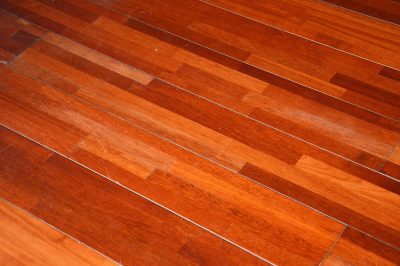5 Must-Follow Tips on How to Start Remodeling A House
-
 By Admin
By Admin
Remodeling a house can be an exciting and rewarding experience, but it can also be overwhelming. ...
Read MoreCall Our Experts: 504-470-0455
Choosing between hardwood floors and vinyl floors is determined by your needs and lifestyle. Vinyl is waterproof, easy to maintain, durable, and affordable, and therefore suitable for busy families or heavy traffic zones of the house. Hardwood flooring, on the other hand, possesses the long-term value of class and durability and adds to the value of your home while selling it, so it is ideal for the individual looking for an upscale feel.
There are numerous benefits to each choice for all types of lifestyles, whether you have children or pets or merely desire a sophisticated look. This Big Easy Renovations guide compares vinyl and hardwood so that homeowners can make an informed decision about which is most suitable for their home. Need help choosing the right floor? Contact us today to speak with our team or schedule a free consultation.
Vinyl flooring consists of brand-new, toxic, man-made materials such as PVC, which is an extremely toxic byproduct of fossil fuels. It’s highly desirable for its beautiful appearance and affordability. Affordable elegance-seeking homeowners adore it.
Of all the different forms that it comes in, luxury vinyl plank (LVP) is maybe the most impressive, for it can replicate the appearance of hardwood with beautiful precision. Vinyl flooring’s latest developments have rendered it incredibly realistic in appearance, so you won’t be compromising on looks for functionality.
The high-performing LVP comes through again, with thicker wear layers rated for up to 25 years of use with adequate care and maintenance. Its easy-care properties promise hassle-free upkeep for bustling homes. Though it is not a biodegradable material, advances in sustainable creation methods are making vinyl flooring better for the planet. With an ROI of 70-80%, vinyl flooring is a functional and economically savvy decision.

Hardwood flooring has been an integral part of home design for decades. Hardwood flooring is long-lasting and cost-effective, and can be maintained for 20-30 years if properly cared for, since it is durable and strong.
It comes in two fundamental forms, solid and engineered, thus accessible to a range of market niches. Solid hardwood comes in one piece of wood, while engineered hardwood has layers for added stability.
This traditional flooring supplies long-lasting beauty and 70-80% ROI, significantly boosting resale value. After 7-10 years of use, it will need refinishing, but this is a process that can return its former luster. Hardwood is more repairable — this is where vinyl loses out. Although the initial price tag is steep, it fits a consumer who values organic materials and sophistication.

Note the fundamental distinctions between vinyl flooring and hardwood flooring. These will help you make the proper decision for your requirements and priorities. They share different advantages depending on varying factors such as cost, longevity, upkeep, and distinctive appearance.
Vinyl flooring is popular because it is so cost-effective, generally costing between $2 and $7 per square foot. Many homeowners use it for renovation because it is so low-priced, especially in larger spaces.
Hardwood is considerably more expensive, usually $5 to $28 per square foot. While hardwood is a more considerable expense upfront, it can raise your property’s resale value by up to 20%. It is a good long-term financial investment for anyone considering the resale of their home.
For families with kids and/or pets, vinyl plank flooring can be a great solution. It’s extremely durable against scratches, dents, and stains. You can expect a lifespan of more than 25 years with adequate maintenance. Beauty aside, hardwood is incredibly durable. It is prone to deterioration in areas with heavy foot traffic. Including refinishing every 7 to 10 years, it can last for centuries.
Vinyl calls for low maintenance. Just sweep daily and mop weekly, and you’re set. Hardwood requires a higher level of care, often needing to be refinished to preserve its timeless aesthetic.
Vinyl is the more DIY-friendly flooring option, with many click-and-lock systems helping to make installation a snap. Hardwood installation almost always needs to be handled by professionals because of the need for exact measurements and special tools.
Hardwood’s natural grain and timeless elegance make it irresistibly attractive. Meanwhile, luxury vinyl is an excellent wood look-alike, so you can get the look you want very easily.
In the end, the decision between vinyl and hardwood is still about your lifestyle and what you believe is important in your home. It’s your choice at the end of the day as to what works best for your lifestyle and furniture.
If you would prefer to have our professionals assist you in choosing the ideal flooring for your specific situation, or if you are finding it difficult to choose between hardwood or vinyl, call Big Easy Renovations, your flooring specialists! You don’t have anything to stress about, we have it all sorted out!
Remodeling a house can be an exciting and rewarding experience, but it can also be overwhelming. ...
Read MoreTable of Contents: 1. Key Takeaways 2. Why Choose Iron Railings? a. Superior Strength ...
Read MoreWhen winter arrives, many homeowners put their renovation plans on hold, thinking that the cold a...
Read MoreA custom closet can increase your home's resale value by up to 30%. Imagine a neat, organized spa...
Read MoreWinter might not seem like the ideal time for home renovations, but it can actually be a smart ti...
Read MoreAlthough remodeling your house may be a fun and gratifying experience, it also requires a con...
Read More